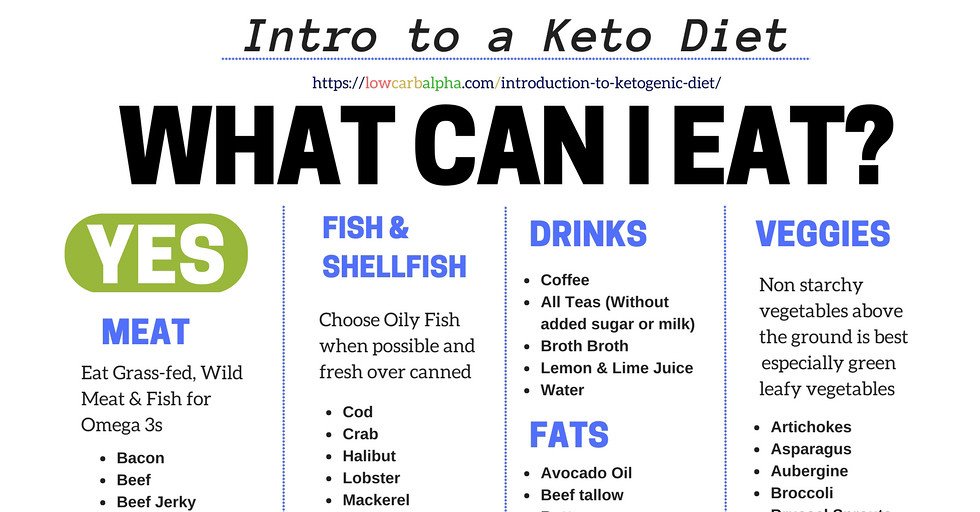Table of Contents
ToggleKeto diet :
The idea behind a keto diet is to get more calories from protein and fat and less from carbs, mostly by cutting out carbohydrates that are easy to digest.
How It Works:
When you eat less than 50 grams of carbohydrates a day, your body runs out of fuel that it can use quickly, usually for three to four days, and then turns to protein and fat for energy. It’s important to note that the keto diet is a short-term diet that focuses on weight loss rather than achieving health.
Who Uses It?
People often use the keto diet to lose weight, but it can also help manage conditions such as obesity, heart disease, certain medical conditions, and even diabetes. However, more research is needed in these areas. Talk to your doctor first to find out if trying a keto diet is safe for you, especially if you have type 1 diabetes.
keto diet for Weight Loss:
A keto diet may help you lose more weight in the first three to six months than some other diets, possibly because it takes more calories to convert fat into energy than it does to convert carbohydrates into energy. It’s also possible that a high-fat, high-protein diet makes you feel more satisfied so you eat less, but this hasn’t been proven yet.
Cancer:
Insulin is the hormone that allows your body to use or store sugar as fuel. So you don’t need to store it, which means your body needs less insulin, and lower levels can help protect you against certain types of cancer. It may slow down if more research is needed on this.
Heart Disease:
It may seem strange that a diet that calls for more fat can raise good cholesterol and lower bad cholesterol, but the keto diet is only linked to it, perhaps because these diets result in lower insulin levels that can prevent your body from making more cholesterol. This means you’re less likely to develop high blood pressure, hardening of the arteries, heart failure, and other heart conditions. It’s not clear how long these effects last.
Diabetes:
Carbohydrates seem to help keep blood sugar low and are more predictable than other foods, but when your body burns fat for energy, it releases compounds called ketones. If you have diabetes, especially type 1 diabetes, too many ketones in your blood can make you sick, so it’s important to work with your doctor on any changes to your diet now.
What are the basic rules for keto?
Keto basics:
The keto diet is a very low-carb, high-fat diet that is similar to Atkins and low-carb diets. It involves rapidly reducing carbohydrates intake and replacing it with fat. It also converts fat in the liver into ketones, which can provide energy for the brain. A keto diet can cause significant reductions in blood sugar and insulin levels, which have some health benefits along with increased ketones.
What do I eat on the keto diet?
There are many versions of the keto diet, and they depend on the type of food you eat.
Until now, only standard and high-protein keto diets have been widely studied. Cycles or targeted keto diets are more advanced methods and have been used successfully by large bodybuilders or athletes. Most of the information in this article applies to the standard keto diet, although many of the same principles apply to other weights as well.
What is ketosis?
Ketosis is a metabolic condition in which your body uses fat instead of carbohydrates for those days. This happens when you significantly reduce your carbohydrate intake, which limits your body’s supply of glucose, which is the main source of energy for cells. Following a keto diet is the most effective way to get into the muscles, usually by limiting carbohydrates to 20 to 50 grams per day and including fats such as meat, fish, eggs, nuts, and healthy oils.
Modifying your keto diet protein intake is important because the keto diet protein per day can be converted to glucose if consumed in excess, slowing your transition into ketosis. Intermittent fasting can also help a muscle-up get into the keys faster. There are many different forms of intermittent fasting, but the most common method involves restricting food intake for about eight hours per day and fasting for the remaining 16 hours.
https://nutritionsource.hsph.harvard.edu/healthy-weight/diet-reviews/ketogenic-diet/
The keto diet protein per day is an effective way to lose weight and reduce disease risk factors. A keto diet can be just as effective for weight loss as a low-fat diet. What’s more, the diet is so nutritious that you can lose weight without counting calories or tracking your food intake.
A very low-carbohydrate, low-carb diet followed by a keto diet was more effective than a low-fat diet for long-term weight loss. Those who followed the keto diet lost more than twice the weight of those who followed a low-fat diet. Moreover, it also reduced the diastolic blood pressure and triglyceride levels. Increased ketones, reduced blood sugar levels, and improved insulin sensitivity may also play a key role.
Benefits:
The keto diet protein per day began as an alternative to treating chronic diseases such as obesity. Studies now show that the diet can be beneficial for a wide variety of different health conditions.
Here are some ideas for healthy snacks:
-
- fatty meat or fish
-
- cheese
-
- a handful of nuts or seeds
-
- keto sushi bites
-
- olives
-
- keto-friendly snack bars
-
- 90% dark chocolate
-
- bell peppers and guacamole
-
- celery with salsa and guacamole
-
- beef jerky
-
- smaller portions of leftover meals
-
- fat bombs
Tips for beginners:
Most restaurants offer a meat- or fish-based dish. Adjust it and replace any high-calorie foods with extra vegetables. Egg-based meals are also a great option, such as an omelet or egg and bacon burgers, another favorite. An egg-based meal is also a great option, such as an omelet or egg and bacon. Another favorite is the bunless burger. I can enjoy any type of meat with extra cheese, salsa, and cream.
Side effects and how to minimize them:
Although the keto diet is generally safe for most healthy people, there is some anecdotal evidence of the effects of what is often called the flu, based on reports from some people on the eating plan that it usually goes away within a few days. Reported keto flu symptoms currently include constipation and vomiting, along with other common symptoms including:
-
- poor energy and mental function
-
- sleep issues
-
- nausea
-
- decreased exercise performance.
Keto is for you if:
-
- Have a high fat percentage
-
- have diabetes
Keto diet risks:
A keto diet has numerous risks. Top on the list is its high saturated fat. The keto diet is associated with an increase in bad LDL cholesterol, which is also associated with heart disease.
Other potential risks include:
Nutrient Deficiencies If you’re not eating a wide variety of fruits, vegetables, and whole grains.McManus says you may be at risk for micronutrient deficiencies, including selenium, magnesium, and vitamins B and C. Liver Problems A diet high in fat to metabolize can worsen existing liver conditions.
Kidney problems The kidneys help metabolize protein, and Metmans says that diet can overload them. Affective thinking and mood changes The brain works best when the energy source is sugar to function from healthy carbohydrates A low-carb diet can cause confusion and fatigue.
The bottom line:
The keto diet can help with weight loss, blood sugar control, and other health goals, but its low-carb, high-fat diet can seem overly restrictive, especially at first. However, this eating pattern accommodates a wide variety of balanced, tasty, and versatile foods that allow you to stay within your daily carbohydrate limits.






Great 👍🏻
Actually I dont get enough knowledge from any other blogs its worth of time for getting knowledge
Nice
Good food and delicious